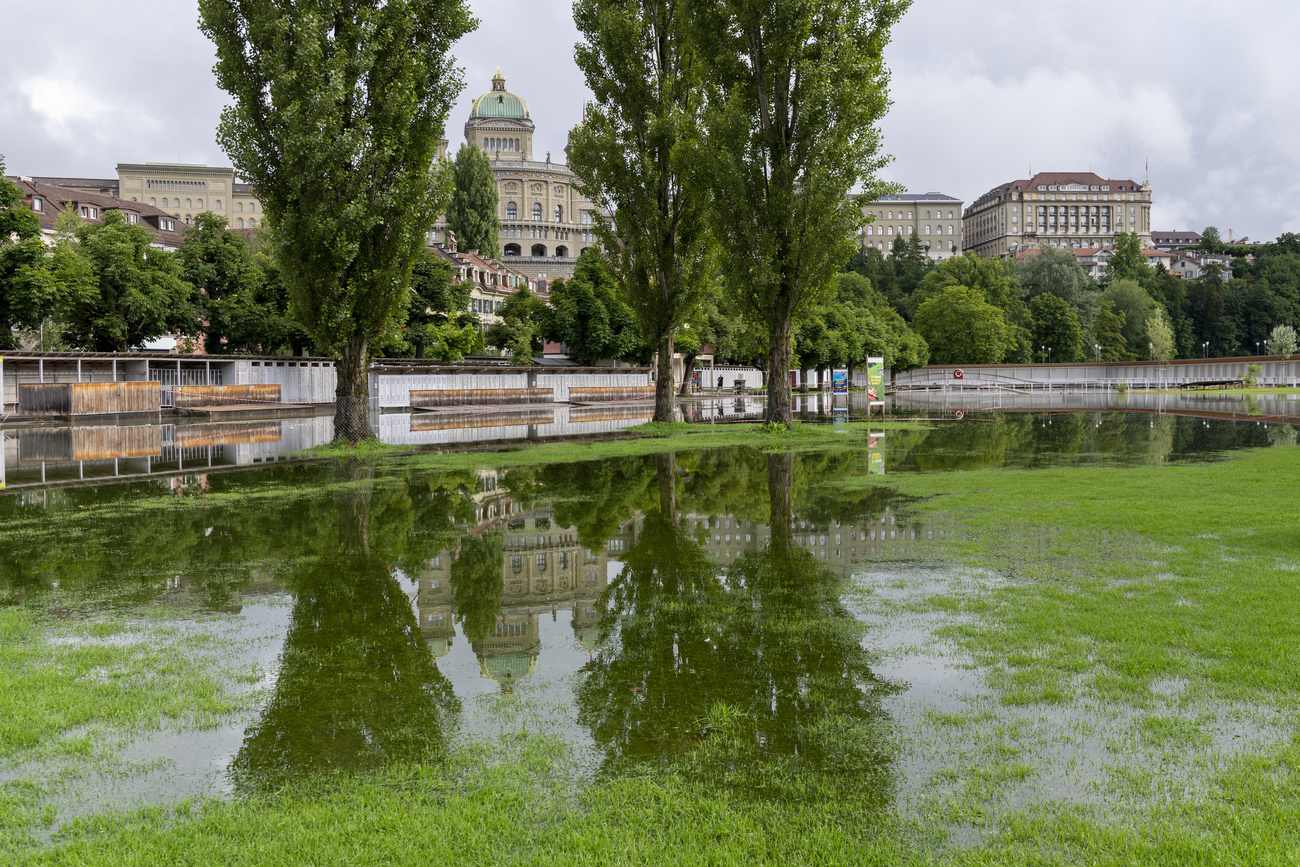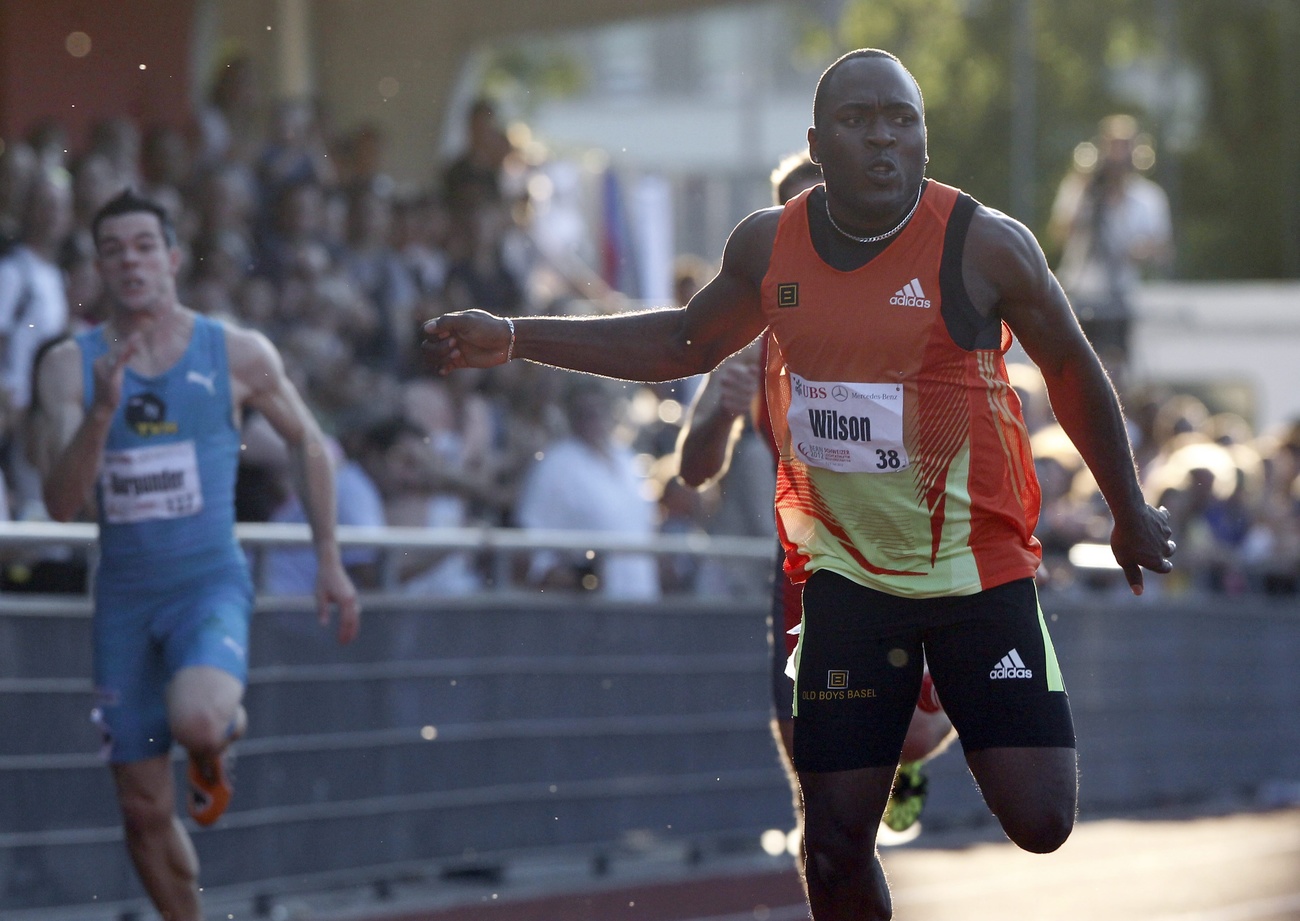
Switzerland today
Greetings from Bern!
A major disaster has been averted in Switzerland. Fears of another “flood of the century” have dissipated. The sun and warm weather are back, and water levels are slowly dropping on most lakes and rivers.
But the cost of the clean-up could still top that following heavy rains in 2007, the second-most expensive weather catastrophe in Switzerland after the storm of 2005.

From our news desk: Heavily swollen lakes and rivers in Switzerland continue to slowly subside after days of torrential rain caused dangerous situations.
Unlike Germany and Belgium, where dramatic flooding killed more than 180 people the Alpine nation suffered no weather-related fatalities last week.
A top federal health official has expressed surprise at the recent growth of coronavirus cases in Switzerland. “We knew they would rise after the re-openings. But we didn’t expect them to increase so much and so fast,” Anne Lévy, director of the Federal Office of Public Health, told NZZ am Sonntag. A total of 1,560 new cases were reported today for the previous 72 hours, along with 29 hospitalisations and four deaths. The seven-day average stands at 509, up 83% on the previous week. The Delta variant accounts for almost 80% of cases. Further updates can be found in our article here.
According to a survey, most Swiss (46%) would like to have their say on a Swiss-EU institutional framework deal aimed at cementing long-term ties between Bern and Brussels (29% don’t think it’s necessary). Of these, 40% say they want new framework negotiations, which are at a dead end; 28% are against the idea.
Some 1,200 new lakes have been formed in the Swiss Alps since the mid-19th century due to melting glaciers, new research has found. Scientists were surprised by the numbers and the accelerated speed at which they were created. Around 180 were added in the last decade alone.

What’s trending in Switzerland? Sprinting and cryptocurrencies
Did Swiss sprinter Alex Wilson (in photo, right, above) smash the European 100-metre record on Sunday night at a small athletics meet near Atlanta in the United States? He clocked 9.84 seconds in the 100m, and later ran 19.89 seconds in the 200m, which would be a new Swiss record. The Lausanne-based European Athletics Federation says it is “clarifying” the times of the hitherto low-profile sprinter of Jamaican origin. Wilson and his coach Andreas Hediger say they are also both surprised by the times. His previous best times this season were 10.38 seconds (100m) and 20.64 seconds (200m). He flies this week to Japan to compete in the Tokyo Olympics in the two sprint events.
Read the amazing story of Dadvan YousufExternal link, a 21-year-old crypto-millionaire who fled to Switzerland from northern Iraq with his family when he was three. At the age of 11 he discovered Bitcoin. After making his fortune, he now wants to share his knowledge with others. “I’ve gotten so rich, I’m doing so well, now it’s time to give something back,” he told NZZ.

Deep dive: Preserving the heritage of Rohingya refugees.
Around one million Rohingya refugees fled Myanmar in the wake of a brutal crackdown by that country’s army in August 2017. Many of their homes were destroyed, and there’s little prospect of them going back anytime soon. Most are living in often squalid tent cities in the district of Cox’s Bazar near the Bangladesh-Myanmar border. It is the world’s largest refugee settlement. Bangladesh does not currently offer the refugees the possibility of work permits, and conditions in the camps – currently hit by a Covid-19 lockdown and heavy rains – are precarious.
Despite these daily problems, preserving their cultural history has not taken a back seat. The Geneva-based International Organization for Migration (IOM) has stepped in to help with the launch of a cultural memory centre. For the moment it is online only but there are plans for a physical structure to be completed in the refugee camps of Cox’s Bazaar, Bangladesh, with exhibitions and workshop space for refugee artists and artisans. Read more about the project here.

Culture corner: The comeback of the bearded vulture
Bearded vultures used to be found throughout the Swiss Alps, but the spectacular, distinctive birds were hunted to extinction towards the end of the 19th century. Thanks to an international reintroduction scheme, they have made a comeback. This video looks at how they are doing.

In compliance with the JTI standards
More: SWI swissinfo.ch certified by the Journalism Trust Initiative









